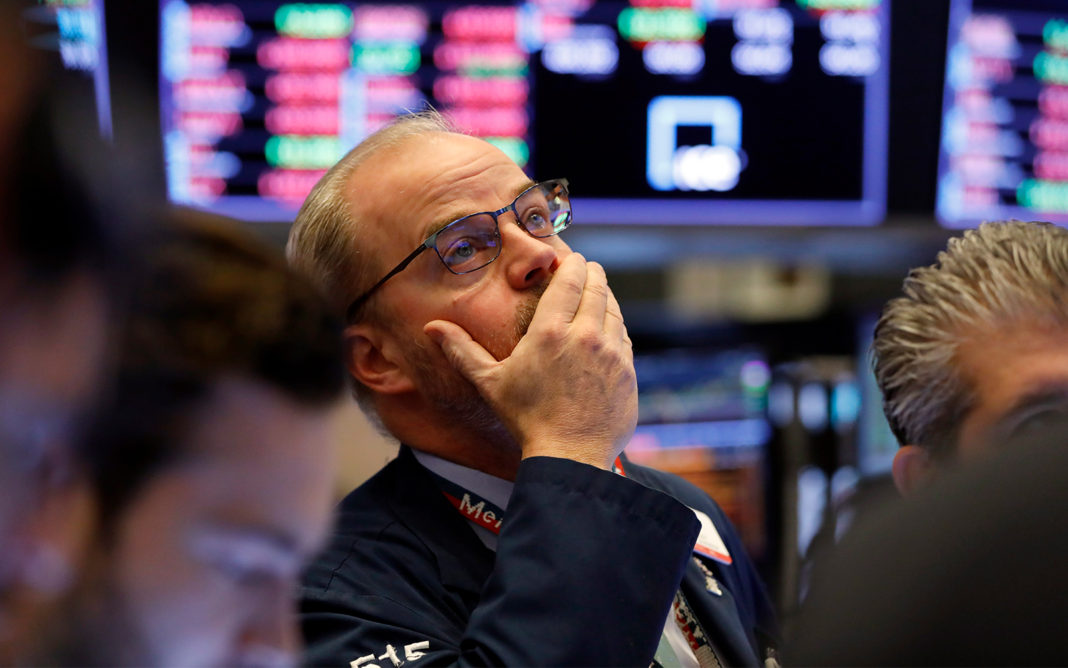Shares dropped Tuesday in Asia after selling of several Big Tech companies pulled U.S. benchmarks lower.
Japan’s Nikkei 225 sank 2.8% and Hong Kong lost 2.4% early Tuesday.
Despite reassurances from the Federal Reserve and a much weaker than expected U.S. jobs reading last week, investors have refocused on the potential for surging prices to pressure central banks into tapering off on their massive stimulus and ultra-low interest rates, analysts said.
“Investors seem to look past the jobs report and continue to place their focus on the inflation narrative with rising commodities prices and chip shortages in play,” Jun Rong Yeap of IG said in a commentary.
Markets are watching for U.S. and Chinese consumer and producer prices due out this week, he said.
On top of that, a number of Asian countries are seeing rising coronavirus infections and deaths that are straining health systems and setting back progress toward vanquishing the pandemic.
Tokyo’s Nikkei 225 slipped to 28,705.95 while the Hang Seng in Hong Kong was at 27,928.11. The Shanghai Composite index shed 0.3% to 3,417.80. In Seoul, the Kospi dropped 1.3% to 3,206.80.
Australia’s S&P/ASX 200 lost 1.1% to 7,094.30. The government is due Tuesday to release a big-spending economic plan for the next fiscal year designed to create jobs and repair pandemic damage and with an eye toward winning votes at looming general elections.
Shares fell in other regional markets.
On Monday, the S&P 500 fell 1% to 4,188.43. The Dow Jones Industrial Average dropped 0.1% to 34,742.82. The blue chip index, which hit an all-time high on Friday for the third straight day, traded higher for much of Monday, but dipped into the red in the last half-hour of trading.
Small company and technology stocks had a rough day. The Nasdaq lost 2.5% to 13,401.86, while the Russell 2000 index fell 2.6% to 2,212.70.
Big Tech companies, including Apple, Facebook, Amazon and Google’s parent company, accounted for most of the S&P 500′s decline. Communication stocks and companies that rely on consumer spending also helped pull the market lower, outweighing gains in household goods makers, utilities and other sectors.
The wave of selling handed the Nasdaq its worst day in more than seven weeks, as the index is heavily weighted with big technology stocks. The tech sector, which led the market’s stunning comeback in 2020, now lags the other 10 sectors in the S&P 500 so far this year with a gain of 3.9%.
Inflation has been a concern for investors since bond yields spiked earlier this year, but yields have mostly stabilized since then. The yield on the 10-year Treasury eased to 1.59% from 1.61% late Monday.
Rising commodity prices have begun to push prices of some consumer products higher but analysts expect increases to be mild and tied to the growing economy.
Though the employment market has been lagging the recovery, other measures show that the economy is pushing forward. Consumer confidence and retail sales are regaining ground as people get vaccinated and businesses reopen. Americans set a record for pandemic-era air travel on Sunday, according to The Transportation Security Administration.
Meanwhile, the most recent round of corporate earnings reports showed a broad recovery touching many different sectors and industries during the the first three months of the year. Much of that was anticipated ahead of the reports and investors are now far off from the next big round of results.
In other trading, U.S. benchmark crude oil lost 52 cents to $64.40 per barrel in electronic trading on the New York Mercantile Exchange. It gained 2 cents to $64.92 per barrel on Monday. Brent crude, the international standard for pricing, gave up 57 cents to $67.75 per barrel.
The U.S. dollar rose to 108.88 Japanese yen from 108.83 yen late Monday. The euro strengthened to $1.2148 from $1.2134.
Source: AP



